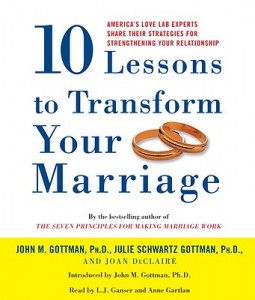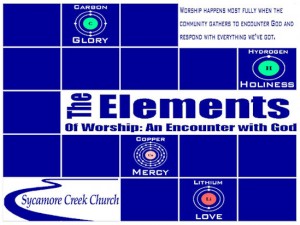
What On Earth Am I Here For? – Called To Be Loved *
Sycamore Creek Church
October 11/12, 2015
Tom Arthur
Peace friends!
Today we continue in this series What On Earth Am I Here For? We’re asking the question: why do I exist? What purpose or meaning does my life have? What is my calling? Over the next five weeks we’re going to look at five dimensions of your calling.
To understand your life’s purpose & calling you must begin with God’s nature. Because God created you, it all starts with God. John, one of Jesus’ closest followers summed up God saying simply:
“God is love.”
~1 John 4:8
God is love. Plain and simple. It is God’s nature, God’s essence. Everything was created as an object of God’s love! The only reason there is love in the universe is because God is love. And humans are made in the image of God. Ants and snails don’t love. They don’t love because they aren’t made in the image of God. But humans love because we reflect who God is: love.
The first purpose of my life is to BE LOVED BY GOD! Not to serve God or obey God or trust God or something for God, but to be loved by God. Your first calling is to let God love you. Let this sink in. Your first duty is NOT to do anything. Not learn. Not listen. Not pray. Not give. Just be loved by God. Exhale…My first calling in this life, the first reason I exist is to enjoy a relationship with God. It’s not about a role or a responsibility or a rule or a regulation or a ritual! It’s about God.
But what kind of relationship is this? Does God want you to be his worker? No! Citizen? No! Slave? No! Servant? No! Soldier? No! We catch a glimpse of the relationship God wants from John:
“What an incredible quality of love the Father has shown to us, that we should be named and called and counted the children of God! And so we are!”
~1 John 3:1 (Amplified Bible)
Children of God. This is your number one calling life. To be a son or daughter of God.
Why would God do this? God does this to express God’s love! God’s love is extravagant, lavish, and beyond comprehension. God loves you on bad days and good days. God will never love you any more or less than right now! God’s love is expansive:
“I pray that Christ will be more and more at home in your hearts as you trust in him. May your roots go down deep into the soil of God’s marvelous love. And may you have the power to understand, as all God’s people should, how wide, how long, how high, and how deep his love really is. May you experience the love of Christ, though it is so great you will never fully understand it.”
~Ephesians 3:17-19 (NLT)
How wide? Wide enough to be everywhere! There’s no place you can be where God isn’t! You may feel alone, but you never will be alone! How long? Long enough to last forever! Human love wears out. We fall in and out of love all the time, but God will never stop loving you. How deep? Deep enough to handle anything! No matter what pain or hurt or problem. Even if you feel like you’re in the “pit of hell.” When you think you’ve hit bottom, God’s love is deeper. God’s love is deeper and so God is able to lift you up! How high? High enough to overlook my mistakes! God offers to forgive you & help you start over! God wanted you here so God could say to you, I LOVE YOU!
How would your life change if you felt completely and unconditionally loved by God every moment? Life would change, wouldn’t it? I want to look at five changes that happen in my life when I am aware of God’s love for me.
1. I Feel Accepted Rather Than Ashamed
Most people avoid God because they feel ashamed, guilty, or judged. But when we know God’s deep love for us we find that we are accepted by God. Paul, the first missionary of the church, makes this point when he says:
“By faith we have been made acceptable to God. And now, because of our Lord Jesus Christ, we live at peace with God.”
~Romans 5:1 (CEV)
Knowing you are accepted sets you free from approval addiction. You don’t always need to be worried about being accepted by others. This is an area of my own life that I need to sink deeper into God’s love, because being a pastor is sometimes like trying to get approval from two opposite extremes. When I wrote my ordination papers to become a pastor, one mentor of mine liked one part of my paper but another mentor didn’t. When I recently asked for feedback on the sermon series from this past year and what we should do in the coming year in an online survey, I got responses all over the map: more Bible. Less Bible. More “how to” sermons. Fewer “how to” sermons. Let’s tackle the controversial stuff. Let’s stay away from the controversial stuff. So someone is not going to be happy this next year! So what am I, what are we, left with? We’re left with being accepted by our creator. If you know you’re unconditionally loved by God, then criticism doesn’t bother you if the Creator of you says you’re OK!
“If God says his chosen ones are acceptable to him, can anyone bring charges against them? Or can anyone condemn them? No indeed!”
~Romans 8:33-34
Here’s a fact: You don’t need other’s approval to be happy! You only need God’s approval. And you’ve already got it. The first way I’m changed by God’s love is that I feel accepted rather than ashamed.
2. I’m Bold in Bringing My Needs to God
If you’ve got kids, you know this phenomena: kids are super bold at asking for what they want. My kids are bold (sometimes too bold!) at asking for what they want! Why are they like this? Because I am their daddy and they are confident that I love them.
“All who are led by the Spirit of God are children of God! So, you should not be like cowering, fearful slaves. You should behave instead like God’s very own children, adopted into his family—calling him ‘Father, dear Father.’ … And since we are his children, we will share his treasures—for everything God gives to his Son, Christ, is ours, too.”
~Romans 8:14-15,17 (NLT)
Have you ever been to Mackinac Island? How bout the Grand Hotel? If you’ve tried to just walk around the Grand Hotel you know that if you’re not staying there you have to pay $10 a person just to walk around. That’s actually quite a bargain considering that the cheapest room at the Grand Hotel is about $300 a night. They go up to $1000 and more a night. But I’ve had the chance to stay at the Grand Hotel three different times for FREE! My wife was a speaker at a women’s conference three different years and I got to go and stay with her for free. It was spectacular. I boldly walked all around that place like I owned it. At one point I bumped into the owner: Dan Musser III. Guess what Dan Musser III’s son’s name is? You got it: Dan Musser IV. Guess what Dan Musser IV gets to do in the winter when the Grand Hotel closes down? He gets to run all over that hotel and go anywhere he wants. Like he owns it. Actually, because he’s the son of the owner, he probably will own it someday. He’s bold because his dad owns it. Our dad may not own the Grand Hotel, but our heavenly daddy owns the universe. So when we know we’re loved by God, we are bold in asking for what we need. We do this in prayer:
“Let us then approach the throne of grace with confidence, so that we may receive mercy and find grace to help us in our time of need.”
~Hebrews 4:16 NIV
BE BOLD! Jesus says you can ask God for anything in his name. It doesn’t mean God will give it to you, but go ahead and be bold in asking. The second way my life is changed when I understand God’s love for me is I’m bold in bringing my need to God because I know I am a child of God.
3. I Have Peace in Pain I Don’t Understand
In times of unexplainable hurt, grief, even disaster and calamity I can have what the Bible calls “the peace that passes understanding”:
“The peace of God, which passes all understanding, will keep your hearts and minds through Christ Jesus.”
~Philippians 4:7 (NKJV)
What is the “peace that passes understanding”? It’s when you’re at peace even though there is no reason you should be at peace. Rick Warren experienced a traumatic event as five-year-old. While riding in the car one day with his two-year-old sister in the back seat, his dad swerved to miss a car. The back door of their car flew open and his sister flew out the door and skidded across the pavement. His dad skidded to a stop and grabbed his sister. His job was to hold his sister while his dad sped to the hospital. Once there and his sister was whisked away to be taken care of, his dad left to call his mom. Rick was alone and was terrified. But then he heard a voice say inside his head, “It’s OK. Your dad has got this.” All of us a sudden he was flooded with peace. It didn’t make any sense. It was the peace that passes understanding. Thankfully Rick’s sister survived and recovered from that accident.
Now we all know that our human fathers can’t do everything, but our heavenly father can! God has unlimited power and unlimited love. God has got this one. That doesn’t mean that God’s love exempts you from pain and dumb decisions. But we do have this promise:
“And we know that in all things God works for the good of those who love him, who have been called according to his purpose.”
~Romans 8:28 (NIV)
The third way I am changed when I know God’s love for me is that I have a peace in pain I don’t understand.
4. I Worship Instead of Worry
Worship is expressing my love to God. In the midst of calling to be loved by God, I respond back to God’s love with my own love. Our love and worship of God is always a response. We love God because God takes the initiative:
“We love because God first loved us,
~1 John 4:19 (NIV)
Your problem isn’t that you don’t love God enough. It’s that you’ve forgotten how much God loves you! Worry is actually a kind of “practical atheism.” Worry is thinking that God doesn’t exist to care for you. Jesus teaches us about worry:
“So don’t worry about having enough food or drink or clothing. He will give you all you need from day to day IF you live for him and make the Kingdom of God your primary concern. So don’t worry about tomorrow, for tomorrow will bring its own worries. Today’s trouble is enough for today.’
~Matthew 6:33-34 NLT
The fourth way my life is changed when I know God’s love is that I worship instead of worry.
5. I Gain the Courage to Take Risks
When someone believes in you, you can accomplish great things! Have you ever watched Britain’s Got Talent? There was this nine-year-old boy name Malaki on the show who got stage fright and couldn’t finish his song. He had an amazing voice but he broke down crying in the middle of the song. His mom ran out to him and comforted him and then he was able to continue. It’s a moving picture of a mom’s love for her child:
Malaki’s mom’s unconditional love gave him courage to continue on and take the risk to try and then start over again. The same thing is true of our heavenly mother. When we know we’re loved by God, we have courage to take risks we wouldn’t if that love was uncertain.
You have no idea how many times God has wanted to wrap his arms around you and comfort you. To say to you, “I love you.” For some of you God has been waiting your entire life for this breakthrough moment. Right now. This is the beginning of the rest of your life! You’ve been afraid to surrender your life to God, you’ve been running from God, because you had no idea how much he loves you! John tells us:
“There is no fear in love. But perfect love drives out fear, because fear has to do with punishment.”
~1 John 4:18 (NIV)
Stop being afraid. Take the risk of letting God’s love find you. Take the risk of becoming a child of God. So how do I become a son of God, a daughter of God? Again, John tells us:
“To all who believed him and accepted him, Jesus gave the right to become children of God. (NLT)
~John 1:12 (NLT)
Believe and accept God’s love in and through Jesus and you will be a child of God. This is your moment. Let’s talk to God:
Prayer
Dear God, I am amazed at how much you love me. Thank you that your love for me is wide enough to be everywhere I go. Thank you that your love for me is long enough to last forever. Thank you that your love for me is deep enough to handle all my problems and high enough to overlook my sins because of Jesus. I want to receive that love. I believe. Help my unbelief. Amen.
This promise is why we’re doing this series about calling. All four other callings flow out of this one: Being loved by God! That love is in our memory verse last week:
I am your creator. You were in my care even before you were born.
~Isaiah 44:2 (CEV)
And when we know that love, we respond with this week’s memory verse:
“Give yourselves completely to God since you have been given new life.”
~Romans 6:13 (NLT)
If you’ve believed and accepted God’s love for you in a new way, would you drop me an email (tomarthur@sycamorecreekchurch.org) so I can pray for you and we can encourage one another. May you know God’s deep deep love for you. Amen.
* This was a sermon first preached by Rick Warren









Recent Comments